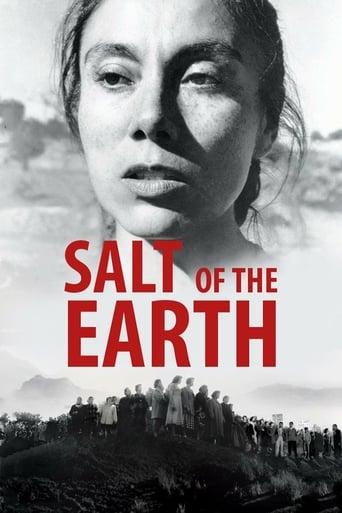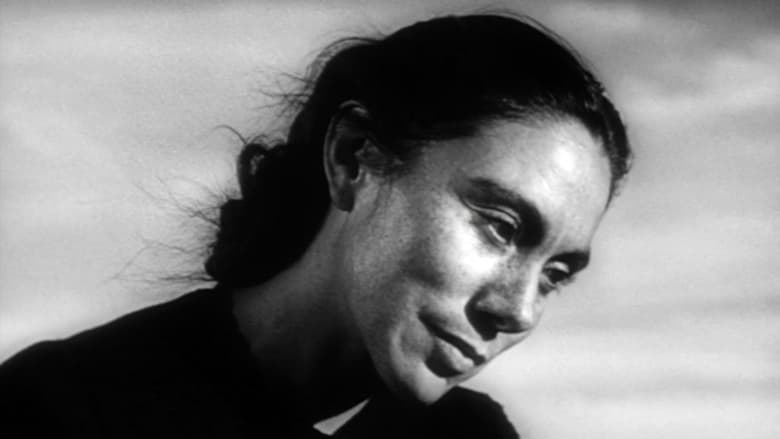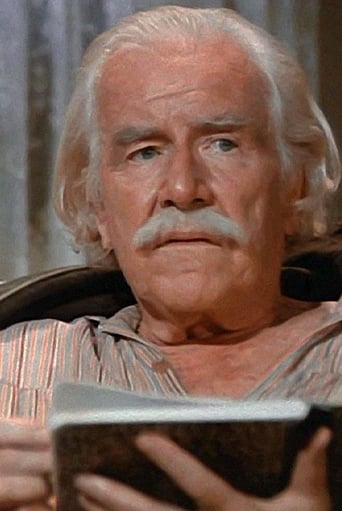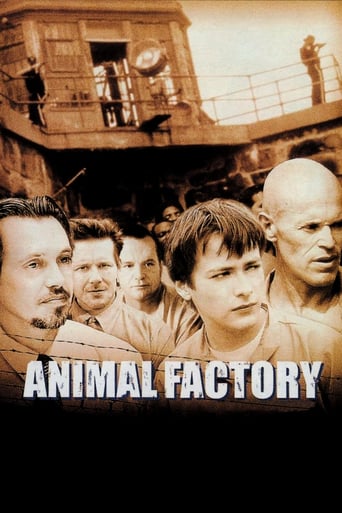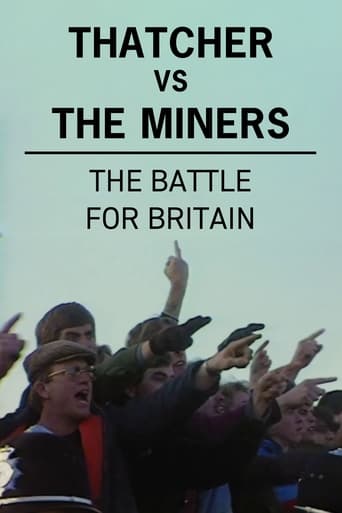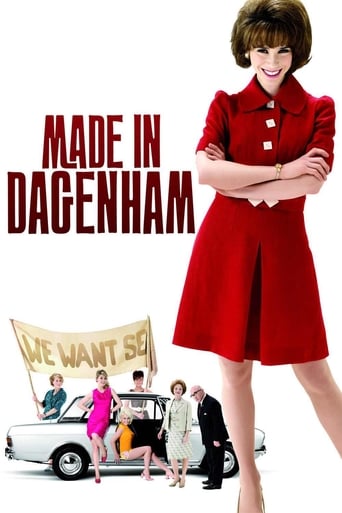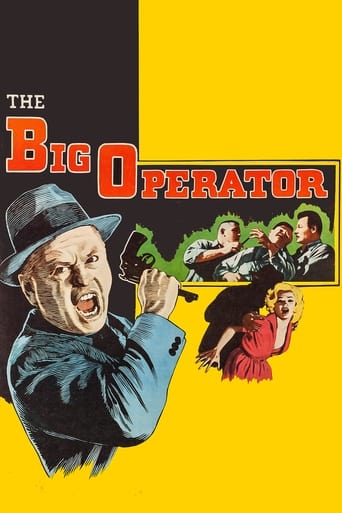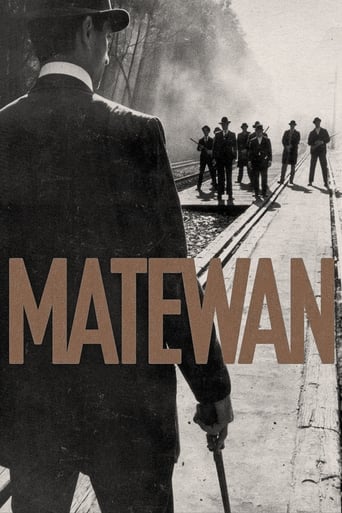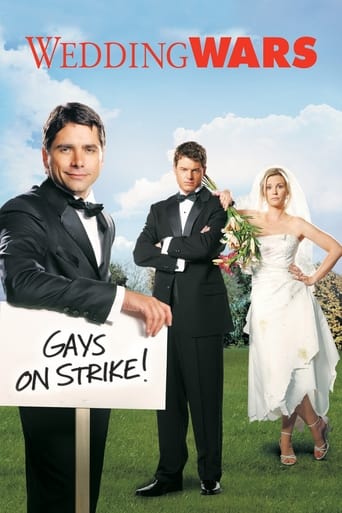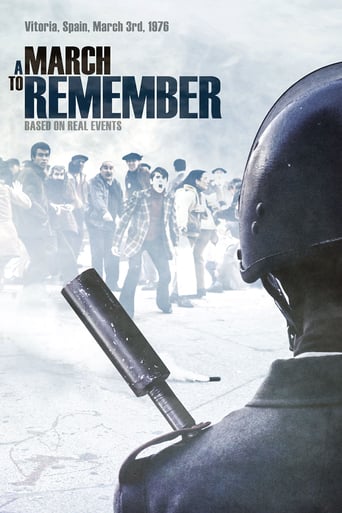Salt of the Earth (1954)
At New Mexico's Empire Zinc mine, Mexican-American workers protest the unsafe work conditions and unequal wages compared to their Anglo counterparts. Ramon Quintero helps organize the strike, but he is shown to be a hypocrite by treating his pregnant wife, Esperanza, with a similar unfairness. When an injunction stops the men from protesting, however, the gender roles are reversed, and women find themselves on the picket lines while the men stay at home.
Watch Trailer
Cast


Similar titles
Reviews
You won't be disappointed!
Sadly Over-hyped
Don't listen to the Hype. It's awful
The film never slows down or bores, plunging from one harrowing sequence to the next.
I love that Communists are blacklisted, not by Congress but by Hollywood, for agreeing with Leninism, which one of its founding tenets is that capitalist countries must be violently overthrown, then they go out and make a film that proves they ARE Communists.Within 3:33 the film tries to manipulate our feelings because a pregnant New Mexican wife doesn't want her baby born into "this world". What world? Oh, the world of POVERTY. Her husband has worked in zinc mines for 18 years in New Mexico. They try to make it about the dirty Americans who took over New Mexico. What they don't say is under the 1848 Treaty of Guadalupe Hidalgo, Mexicans in those annexed areas had the choice of relocating to within Mexico's new boundaries or receiving American citizenship with full civil rights. So, right off the bat, if you don't want to be an American, you didn't have to. Whatever the US did to Mexicans pales in comparison to what they did to each other in the bloody death of the Mexican Civil War which claimed 1.5 million lives.The husband in this saga drinks every night in the beer parlor, leaving his family alone. If you're not making that much money, it's not helping that you're drinking your earnings away. Obviously the reason he works in the zinc mines is that it's the best paying job around, otherwise he'd work another job. Besides, mining has always been inherently dangerous, even today. The idea of a union strike, which this movie pushes hard for, is shown as neglectful of even the demands of the workers' wives for sanitary plumbing. Then, when one of the workers is willing to break ranks because his family needs to eat, is spit upon by the union boss.In the movie, it takes the union 7 months to agree to 'allow' hardship workers to seek work in other mines, demonstrating that the union's first priority is itself, rather than allowing workers to go to other mines on their own accord anytime, like the mining companies themselve would. The film also discusses the Taft-Hartley Act, which prohibits wildcat strikes and mass picketing. A court order in the movie prohibited the mass picketing. The film argues that "scabs" will take their jobs if they aren't allowed to picket. It overplays its hand. They win their strike, at which point the narrator says they have won something 'they' can never take away. Well, mining projects close down all the time if they become uneconomic. Mining is not like bottling Coke. Mines have depleting ore bodies, and miners frequently have to move to new mines.It's hard to know which is more wretched, the script, the acting or the editing, reminiscent of Tommy Wiseau's The Room. But above all, the wretchedness is in the ham-handed depiction of unions as all good. Illinois has lost tens of thousands of jobs to the South because it is not a "right to work" state, it pushes out nonunion companies.
The propagation of fear of the "other", or the unknown, is a fervent device used by governments for the control of the masses (the population). In the 1940's and 1950's in the west (particularly the United States - and to a lesser extent the UK), the common object of fear was the spread of Communism. In 1947, this paranoia about the infiltration of socialist ideologies into US politics, culminated in the organisation of HUAC (House Un-American Activities Committee), which began a witch hunt for any persons involving themselves (allegedly) in Communist politics and ideas. Propaganda was in full swing by 1954, and the hunt was extended into the arts, particularly Hollywood - with its "Harbouring" of socialism - which led to the imprisonment of "The Hollywood Ten" which included the writers and filmmakers involved in the making of Salt of the Earth - which was inevitably blacklisted.With a largely non-professional cast (only five were professionals), this neo-realist style film tells the story - based on real events - of a workers strike for equality of pay and conditions for American- Mexicans working in the Delaware Zinc mines in New Mexico. Told from the perspective of Esperanza Quintero (Rosaura Revueltas - one of the five actual actors), the film opens with a domestic scene and her narration, as she outlines their social conditions, and the small community. Her husband, Ramon (incredibly heartfelt performance by non-professional, Juan Chacon), signifies the "traditional" male, whose displays a reluctance for his wife to involve herself with nothing but the upkeep of the home, and the raising of their children (not a particularly revelatory experience in the 1950's).After the failure of the men - bound by union restrictions - to successfully picket the mine, the women of the village take their places, creating a barrier to the entrance. This destabilises the workers union to begin with, and fundamentally disrupts the home life of Ramon and Esperanza - whose conventional roles are reversed, creating an emasculated man-of-the-house. The reactions of the mining management/owners leads to the arrest of all the women, which creates an even greater sense of solidarity between the women, and eventually (once they realise the importance of this strike) the men.Within the context of this film, it is hard to believe in this day that this film (which perpetuates socialist ideas - Communist theories) was regarded as dangerous to the point of being blacklisted. However, what this part of history highlights is that these political ideas are simply dangerous to a hegemony of market power. That is, the fear of Communism (or socialism) is simply that it would - in theory - give equal rights and fair wages to the workers of any company or corporation. Of course, if socialism did spread, this would mean the obliteration of the free market economy that has so far simply created a greater divide of rich and poor in the West, and ultimately led to such incredible greed, and intrinsically creating the banking crisis of 2008.With a strong cast of actors and locals, this film is both enlightening and emotionally mature. It is itself a piece of pure propaganda, but it skillfully emphasises the socialist ideal of equality. The film also raises some interesting feminist questions - a movement that didn't really become part of popular culture until the late '60's and '70's - and gravitates towards alternative social roles for women. It was of course ignored by the Hollywood system, but eventually found audiences within film schools and workers unions. A common reaction was astounding: The Hollywood Reporter (a trade magazine) made a bold and frivolous statement claiming that the film was made under the direct orders of the Kremlin. It is an incredibly important piece of social history, that is also successful as an interesting and entertaining slice of cinema.www.the-wrath-of-blog.blogspot.com
This by no means is a great or greatly made movie but it tells a good story. It's a movie about standing up for your rights and against discrimination as well as female emancipation. All in all more than enough elements for the American government to ban this movie and blacklist basically every person involved with it, if they weren't blacklisted already that is. Pretty ridicules of course in todays light but that's how things were during the McCartney-era. Most notable blacklisted person involved with this movie was writer Michael Wilson, who would later write the classics "The Bridge on the River Kwai" and "Lawrence of Arabia" but never in his life-time received the acknowledgment or acclaim for it because he simply couldn't been given the writing credits for its, due to the fact he got blacklisted in the '50's. Prior to that he also wrote the screenplay for other classics "It's a Wonderful Life" and "A Place in the Sun".It is still a relevant movie because of the issues it handles. And this is also one of my complaints with this movie. At the end you don't really feel that the characters and this movie actually achieved anything the change the whole situation. As long as money is important companies like this will use cheap labor forces, with minimum wage and without overly expensive safety measures. This is not something typical American. Of course not everything is still the same now days but some of the problems of the old days got replaced by a whole new similar bunch of problems.The movie got made very cheaply and in secret, due to the involvement of blacklisted persons. Because of this the movie does not exactly use the best director, the best cinematographer, the best editor or the best actors. As a matter of fact the movie its cast largely consists out of non-actors and it gets presented and mentioned as if that's something to be proud. I'm sorry but more than halve of these persons in this movie just really can't act. But granted that this movie is not necessarily a movie, so not everything I just mentioned really matters for the end result. It can be seen as the telling of a true story, in an almost documentary like style. It got shot at the spot, with only the available things and persons at hand. It got shot at a real Mexican miners community, with real miners and their families.Really not the greatest looking or made movie but it tells a good story.7/10http://bobafett1138.blogspot.com/
I am ashamed to say I had never heard of this movie until last week, when I finally read Danny Peary's terrific book, "Alternate Oscars." I was stunned to see that for 1954, Peary picked a movie I had never heard of ahead of the winner, "On the Waterfront." I ordered a copy from Amazon and finally was able to sit down and watch it tonight. I had read many of the comments posted here, and of course some of them talked about the "communist" propaganda in this movie.It may have been radical for the '50s to stand up for the rights of laborers, Chicanos and women, but if it was anything, it was a little ahead of its time. All this movie is about is Mexican-American working men asking to be treated the same as Anglos, and women asking to have a voice in their families' lives.When you realize this movie was made on a shoestring, almost completely with blacklisted people, the accomplishment is truly stunning.As much as anything that made this movie ahead of its time, it's the feminist subplot that made this movie radical.I'm not surprised it was banned during the McCarthy era. Its banning says far more about what was wrong with America at that time than anything about the movie itself.Rosuara Revueltas gives an amazing performance as the miner's wife. She was deported to Mexico for starring in this film and not only did she never make another movie in the U.S., she didn't act again in Mexico until 1976.

